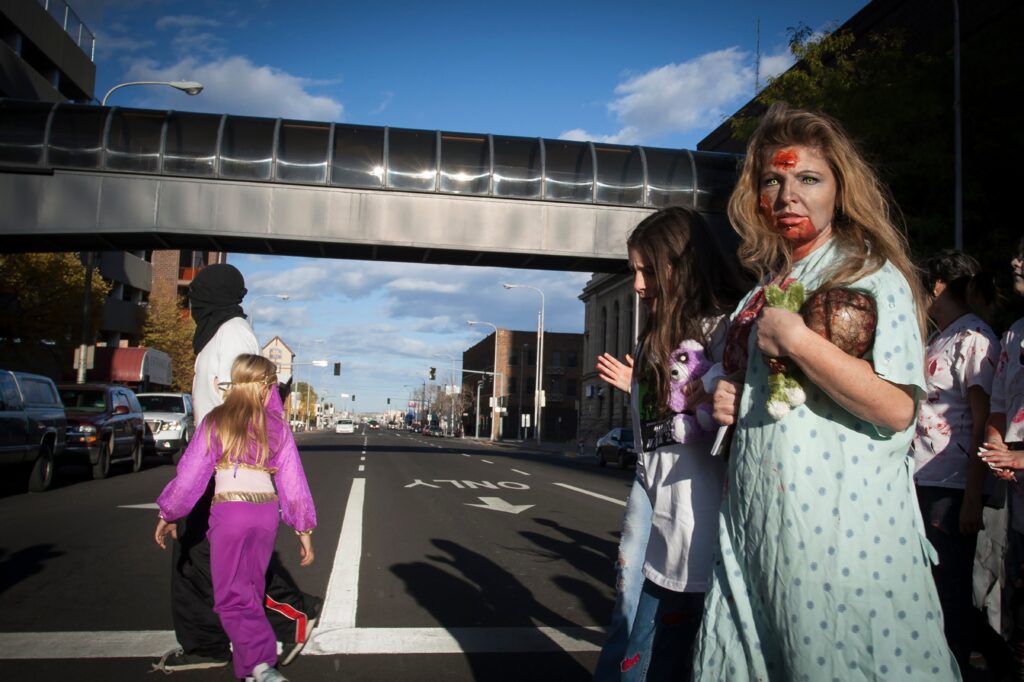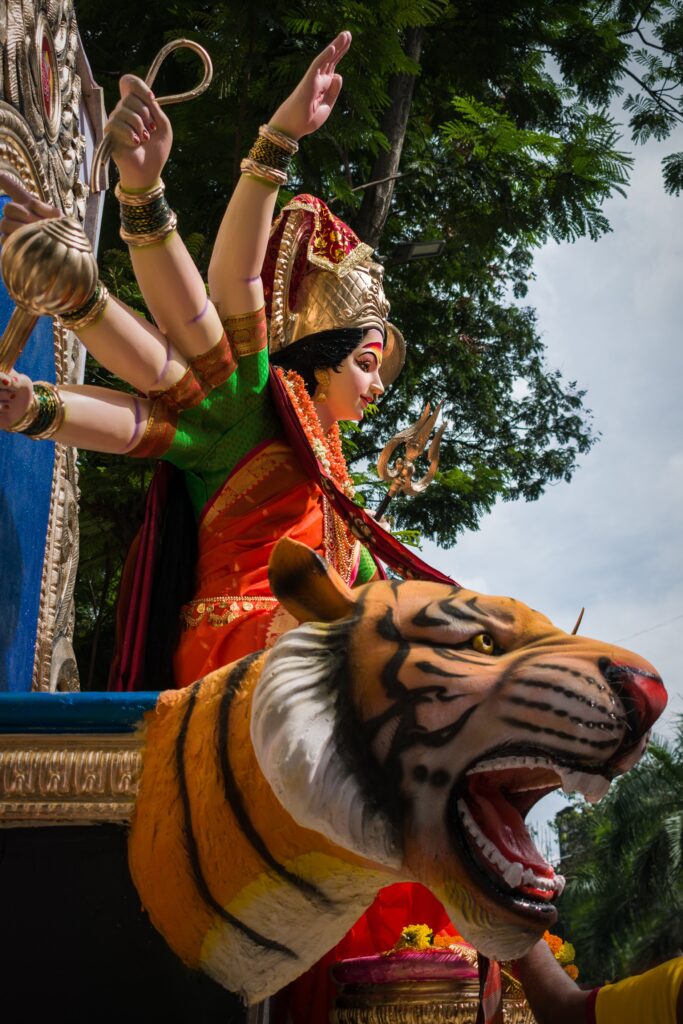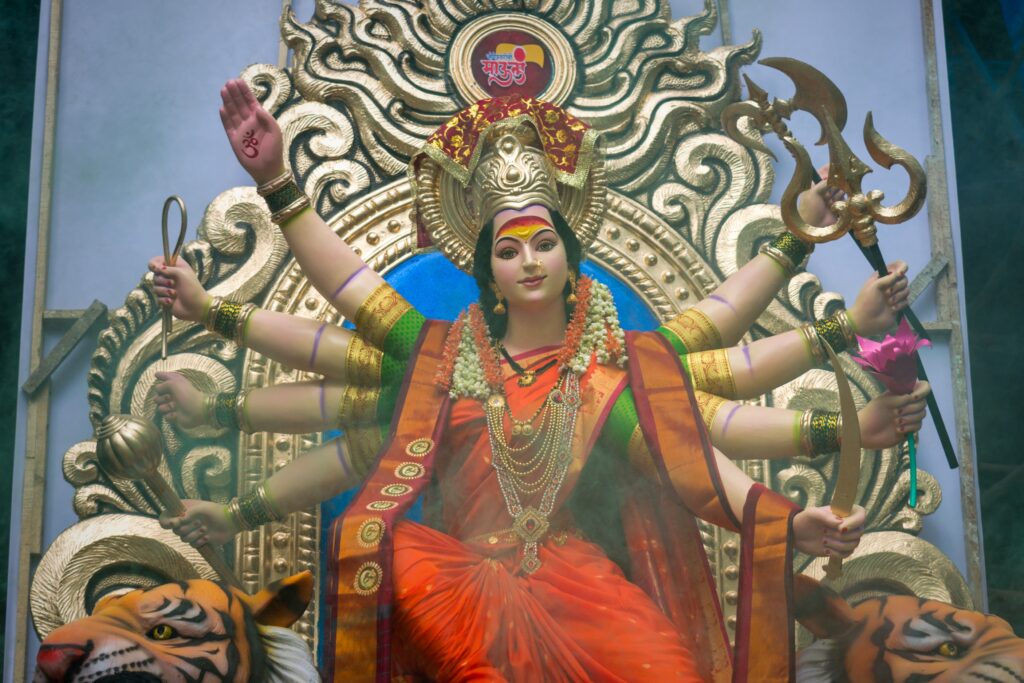In the exciting story of “Unearthing the Undead: The Rise of Zombie Culture in Films and Series”, you’re going to find out about how zombies have become really popular in movies and TV shows. It’s kind of like when all your friends suddenly start liking the same toy or game, but this is with grown-ups and scary creatures! You’ll learn about how this happened, and why people seem to enjoy being a bit scared from their couch. And don’t worry, it’s going to be just as much fun as staying up past your bedtime!
The Genesis of Zombies in Media
You’ve seen them in movies, on television, and even in video games. Groaning, stumbling, and always, always hungry, zombies are everywhere. You might not understand where they come from or why we’re so scared, yet fascinated, by them. Let’s start from the beginning.
Origins of zombie mythology
Zombies come from old stories or myths, kind of like dragons or unicorns. These stories started in a very far away place called Haiti. There, people believe or once believed, in something called voodoo and that’s where we get our original ideas of zombies. They imagined people being controlled, almost like puppets, not the brain-eating monsters we think of now.
Historical expression of zombie folklore in literature and early cinema
Before there were televisions, and even before there were many movies, people wrote stories about zombies. These early stories and movie scenes didn’t just scare people, they also gave them a way to talk about big things, like being afraid of what could happen after you die, or what could happen if we let someone else control us completely.
The seminal works that established the zombie genre
Zombie stories really took a scary turn when people began making movies. One of the first famous zombie movies was “Night of the Living Dead.” This scary movie really started the whole zombie craze and we’ve been making movies about these creepy, crawling creatures ever since.
Evolution of the Zombie Archetype
Transformation of zombie characteristics over time
Over time, our ideas about zombies have changed, just like how characters in a book or movie might change. They started as almost sleepwalking people, but now they are often seen as monsters who want to eat brains or turn other people into zombies.
Developments in zombie narrative and symbolism
As the stories we told about zombies changed, so did what they meant to us. They started as a way to talk about fear and control, but now they also help us talk about things like what would happen if the world came to an end, or how people might act when they are scared.
Impact of sociopolitical tones on zombie portrayal
Big fancy words like “sociopolitical” mean how we get along with each other in society – like who makes the rules, and how we share—or don’t share—our toys. These ideas have changed our zombie stories too! Sometimes, the scariest part of a zombie story isn’t the zombies, but how the people react to them.

This image is property of images.unsplash.com.
Zombie Movies – The Dawn of a Genre
Pioneering zombie movies and their cultural significance
Zombies became even more important in our stories when we began making more movies about them. Movies like “Night of the Living Dead” and “Dawn of the Dead” scared lots of people, but also made them think and talk about important ideas like fear and society.
Role of special effects and makeup in zombie depictions
Have you ever dressed up like a zombie for Halloween? Special effects and makeup can make the zombies in movies look very scary and make us believe they are real, just like your costume on Halloween makes your friends believe you’re a real zombie!
Influential directors and their contributions to the zombie genre
Just like how an author tells a story in a book, directors tell the story in a movie. Some directors, like George A. Romero, have made a lot of zombie movies and helped make them a part of our storytelling tradition.
Zombies on Television – Injecting Undead into the Living Room
Groundbreaking zombie TV shows and their themes
Zombies aren’t just in movies, they are also in TV shows! Shows like “The Walking Dead” and “Z Nation” have brought the zombie stories right into our own homes. These TV shows have more time to tell their stories, so they can give us even more to think about!
Differences between zombie movies and TV series
While movies have to tell all their stories in two hours or so, TV shows can take weeks, months, or even years! This means TV shows can introduce more characters and explore bigger ideas, and of course, include more zombies!
Narrative techniques used in long-form zombie storytelling
TV shows can take their time telling stories, so they can use more complex ideas to keep us watching. This means more climaxes, more cliff-hangers, and more opportunities to scare us!

This image is property of images.unsplash.com.
Zombie Culture – More Than Just Entertainment
Why zombies have become ingrained in popular culture
Zombies are important to us because they let us talk about big ideas and fears in a fun and scary way. We can learn a lot about ourselves and our world by watching and talking about these creepy creatures.
Exploration of societal fears and trends through zombie narratives
Sometimes, zombie stories are actually talking about stuff in the real world. They can let us explore our fears and hopes by pretending they are about zombies.
Examination of resulting Zombie fan culture
People love zombie stories so much they make a part of their lives. They dress like zombies, act like zombies, and talk like zombies. They collect zombie toys and share their fascination with others, forming a “zombie culture”.
Iconic Zombie Characters and Their Influence
Character analysis of notable zombies
Just like any characters in a story, every zombie is a little different. Some zombies are more famous or iconic than others. They help us tell our zombie stories and stand out in our imaginations.
The impact of these characters on pop culture
These famous zombies have a big impact on our stories and our culture. They end up on lunchboxes and t-shirts, in video games, and all over Halloween decorations.
How these characters have inspired subsequent zombie creations
After a zombie becomes famous, other storytellers use them as inspiration for their own zombies. This lets the idea of “zombies” continue to grow and evolve, changing from story to story.

This image is property of images.unsplash.com.
The Zombie Industry – A Profitable Apocalypse
Financial aspects of zombie movies and TV series
Making zombie movies or TV series costs money, but they also make lots of money! People love buying tickets to see scary zombie movies and renting zombie shows.
Merchandise and spin-offs – extending the life of the undead
Besides movies and TV shows, people also buy zombie toys, clothing, books, and games. They might even buy zombie-themed stuff for their pets!
Examples of successful business ventures inspired by zombie culture
Because of the popularity of zombies, some people have been very successful with their zombie products, like “The Walking Dead” comics, or zombie video games.
Zombies Around the World – A Global Epidemic
Cultural differences in zombie narratives across the globe
Zombies are everywhere, not just in America. Different countries tell different zombie stories, reflecting their own cultures and experiences.
Influence of American zombie culture on non-American cinema and TV
Every country tells their own zombie stories, but they also take things from American zombie stories. This means that zombies really are a global phenomenon!
Review of select international zombie films and series
There are many examples of zombie movies and TV shows from around the world. Some very scary ones include “Ringu” from Japan and “Train to Busan” from South Korea.
Criticism and Controversies Surrounding Zombie Culture
Moral and ethical concerns related to zombie content
Not everyone thinks zombie stories are good. Some people think they can make people scared or can change the way we think about each other.
Controversies over depiction of violence and gore
Zombie stories can also be very violent. Some people don’t think it’s good for us to watch such scary and gory things, especially children.
Debate over the ‘monstrous’ portrayal of the Other
Sometimes, zombie stories divide people into “us” and “them” and portray the “them” as dangerous and scary. This can lead to big debates about whether this is a good or a bad thing.
The Halloween Junkie Take
Reflections on the rise of the zombie genre and its impact
Well, that was quite a journey, from voodoo myths to the big screen, from horror to humour. Zombies have really sneaked their way into our lives as much as they have our nightmares!
The joy and fun in embracing the spookiness of zombies
Despite all the fear and gore, zombies can be fun! Just think about dressing up as one, or laughing at your friend who got scared during a movie.
Future predictions for the popularity and evolution of zombies in media
So, what’s next for our undead friends? Will we get tired of them? Or will they keep scaring and teaching us for many years to come? Only time, dear reader, will tell!

